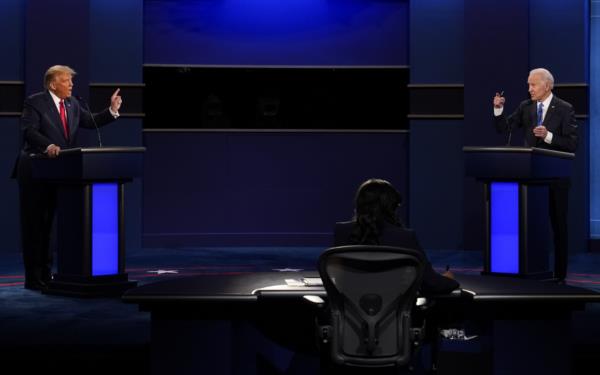
Title: Republican Primary Voters and Trump's Influence: A Closer Look
In the world of American politics, there are Republicans who align themselves closely with Donald Trump, those who initially criticized him but later showed support, and a minority who have consistently opposed him. Interestingly, a significant 47% of all voters seem to agree with President Trump's language and policies, indicating a broader problem within the country's immigration debate.
The influence of President Trump on evangelical voters is a puzzling phenomenon. Although he may not align ideologically with their beliefs, Trump has managed to sway evangelical voters, particularly evident in the northwestern part of Iowa, where Ted Cruz won many counties with strong evangelical populations. Despite his unorthodox language and behavior, Trump is often seen as a potential deliverer for evangelical voters, and his recent wins with evangelical-focused policies, such as the Dobbs decision, have further strengthened his appeal.
It is worth noting that Trump's rhetoric has been absorbed by evangelical voters who now use the church and religion as a means of political expression, a trend that has increasingly prevailed in recent years. This shift in evangelical behavior and perception of the role of the church in politics marks a departure from the past, impacting how candidates are evaluated and supported.
Furthermore, it is important to consider Trump's position as an incumbent president in the upcoming election. Recent polling data indicates that a remarkable 69% of Republican-leaning adults believe Trump has the best chance of winning in November. This statistic demonstrates that a significant portion of the Republican voter base, although acknowledging his flaws, still finds reasons to justify their support. This sentiment can be attributed to a variety of factors, including concerns about the economy, foreign conflicts, and basic human psychology that often leads individuals to believe that their chosen candidate has the highest likelihood of winning.
However, it is crucial to acknowledge the reality of Trump's previous electoral outcomes. In the 2016 election, despite winning the electoral college, Trump lost the popular vote by a margin of 3 million votes. Looking ahead, recent data shows that Trump is currently trailing by 7 million votes to his Democratic rival. While 47% of Americans may agree with Trump's language and policies, it remains important to recognize that 53% do not, highlighting a substantial divide among the population.
The Republican voter base, primarily located in swing states, plays a crucial role in determining the election outcome. Although Trump's campaign strategists are aware of the challenges they face in securing his re-election, there remains a possibility for him to regain states like Georgia and Arizona if he can maintain the support of all his 2020 voters and hope for a decrease in support for Joe Biden among Black and younger voters.
Ultimately, the election will come down to the votes cast by individuals in the ballot booth. Polls may provide insights, but the choices made by voters on Election Day will be the deciding factor. As the election approaches, all eyes are on Trump's ability to maintain his support and Biden's chances of holding onto the voters who currently show a dip in approval ratings.
In this highly polarized political climate, it is pertinent for both candidates to understand the concerns and aspirations of the American people. The desire for strong leadership, economic stability, and effective immigration policies are among the key issues that will shape the campaign and ultimately determine the future of the United States.







